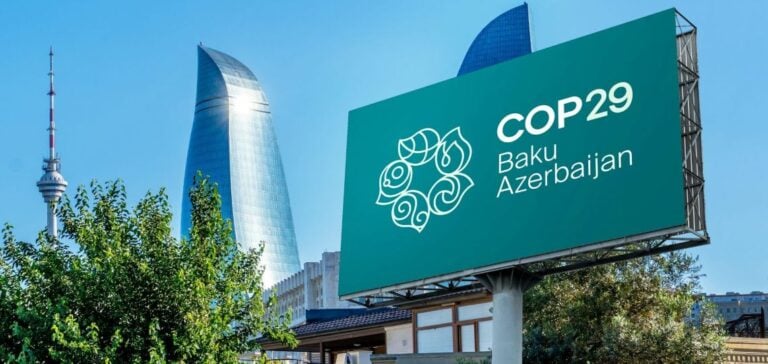The COP29 climate summit, chaired by Moukhtar Babaïev, Azerbaijan’s Minister of Ecology, was marked by the adoption of a controversial agreement. It outlines $300 billion in climate financing by 2035 for the least developed countries, aiming to address the historical responsibility of industrialized nations in global warming. However, numerous criticisms have emerged, particularly from Southern countries, denouncing the insufficient funding and opaque negotiation processes.
In a column published Monday in the *Guardian*, Moukhtar Babaïev defended the agreement while acknowledging its shortcomings. He blamed Northern countries for “inflexibility,” which, according to him, hindered more ambitious progress. “The Chinese were willing to propose more if others did the same,” he noted, emphasizing that discussions were stalled by rigid positions.
An increase from previous commitments
While the $300 billion commitment significantly surpasses the $100 billion pledged in previous climate agreements, many participants expressed dissatisfaction. Critical voices, particularly from France and Germany, highlighted the lack of leadership from the Azerbaijani presidency and inadequate preparation. For Southern countries, the agreement was seen as a “fait accompli,” with finalized projects released too late for proper review or objection.
“My negotiation team ardently argued for earlier publication of the projects,” Babaïev stated, while insisting that Northern countries pressured for the announcement of lower figures.
Assistance deemed insufficient
Criticism was not limited to the process. The substance of the agreement was also deemed inadequate for addressing global climate challenges. According to Babaïev, industrialized nations’ contributions remain “too low,” while private sector commitments are still “too theoretical.” These gaps, combined with the disappointment of developing countries, have marred the legitimacy of the process.
Nevertheless, the COP29 President stressed that a complete negotiation failure would have been an even greater setback. “What we agreed upon in Baku will help slow the effects of human-induced climate change, but it is not enough,” he concluded, calling for continued efforts at the upcoming COP30.






















